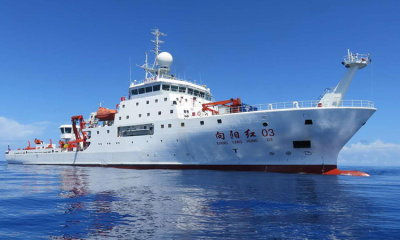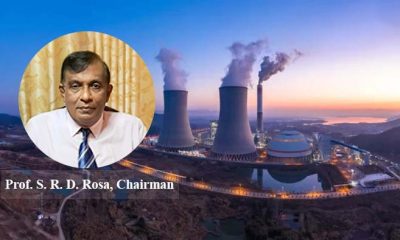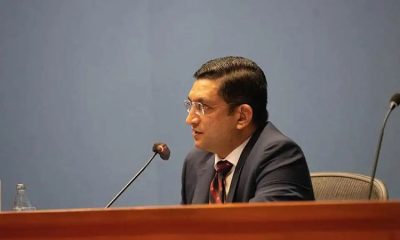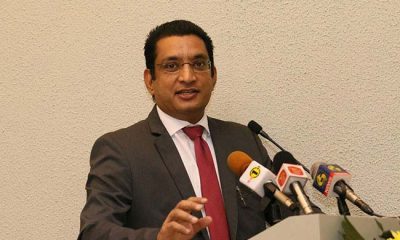News
Foreign Ministry mum on Russian proposal to build cost effective advance nuclear reactor
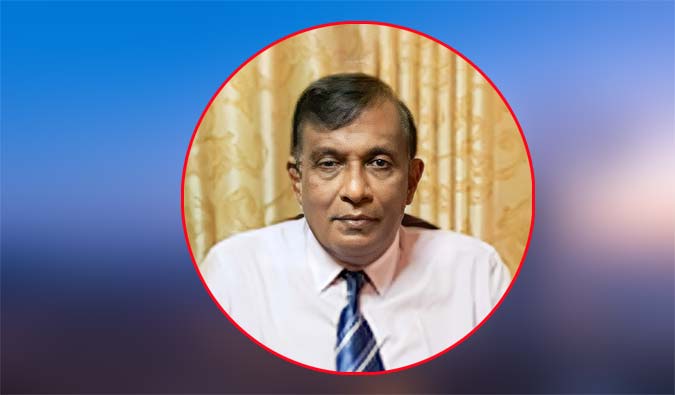
By Rathindra Kuruwita
Sri Lanka has capable engineers to operate a nuclear power plant and these power plants are very safe, Prof. S.R.D. Rosa, Chairman, Sri Lanka Atomic Energy Board (SLAEB), said during a recent seminar organised by the Institution of Engineers Sri Lanka (IESL) on ‘Potential of nuclear energy and its challenges in Sri Lanka.’
Prof. Rosa said that many erroneously believed that Sri Lanka did not have the human resources to operate and maintain a nuclear power plant.
“Of course, if we start a nuclear power plant we will have to get help from others initially. We need to work on public perception because many people assume nuclear power plants explode all the time. Nothing can be further from the truth.”
Rosa said nuclear power plants were regulated strictly. The SLAEB had started to amend the Lanka Atomic Energy Act as the current Act does not permit nuclear power plants in the country, he said.
“If we are going for nuclear power the Act has to change and the government has started the amendment process. This is chaired by Justice Sobitha Rajakaruna and I am also a member. We hope to finish the amendments by July,” he said.
Rosa added they have received a number of proposals to construct nuclear plants in Sri Lanka. Russia’s Rosatom, China’s China National Nuclear Corporation (CNNC), France’s Électricité de France (EDF), and Denmark’s Seaborg have submitted proposals. USA’s Ultra Safe Nuclear Corporation (USNC) and Canada’s Atomic Energy of Canada Ltd (AECL) have expressed willingness.
“The proposal from Russia is a very comprehensive and a complete proposal. Russia is building two nuclear power plants in Bangladesh and one in Kudankulam, India, which is only about 207 kilometres from Kalpitiya. I think the Russians also want us to join their regional efforts. We had many discussions with Rosatom officials, including many Zoom sessions, and finalized the proposals. To finalize this, we need to sign intergovernmental agreements (IGA). We sent the proposal to the Foreign Ministry six or seven months back, but we still have not got an answer. It’s probably because of the Russia-Ukraine war and IMF, etc.”
Sri Lanka has also received a complete proposal from China and representatives from CNNC visited Sri Lanka about two months ago. The CNNC officials met SLAEB and even brought a prototype, Rosa said.
“EDF, too, has sent a proposal. We then have a unique proposal from Denmark. Seaborg Technologies is a private Danish startup. They are building barges or floating nuclear power plants. Seaborg Technologies is working on building power plants in Vietnam, and Indonesia and wants to build a third one for Sri Lanka.”
Rosa said USNC and AECL have sent proposals of willingness, but they are not complete or comprehensive proposals. Sri Lanka now has received six proposals. Seaborg has offered a power barge, Russia has offered Sri Lanka both onshore and offshore power plants, while the others have proposed conventional nuclear power plants, he mentioned.
“We have to also think about the prices. There is no point in building a nuclear power plant if the unit cost is about 60 rupees. The problem is that no one gives the exact price unless you sign a Non-Disclosure Agreement (NDA) or a Memorandum of Understanding (MoU). Russians have offered us several options, depending on our requirements. If we go with the offshore plant, Russians will build and bring if here and we will have to sign a 10- or 20-year MoU. We have asked the price but they have not given us an exact price. However, we looked at the nuclear power plants Russians have built in Bangladesh, the unit price is between 27 to 30 Sri Lankan rupees.”
He added that China and Russia are the only countries that have successfully built operational Small Modular Reactors (SMRs), advanced nuclear reactors that have a power capacity up to 300 MWs per unit.
Rosa said that they have prepared a Cabinet paper and that they have asked the government to take a “strategic and visionary” decision on generating electricity from nuclear power as a policy. They have also asked the government to invite expressions of interest from government institutions of suitable countries producing nuclear power plants compatible with the technical, economic, social, environmental and legal conditions of Sri Lanka and that can provide an integrated solution, including fuel cycle options and radioactive waste management options.
“We want a clear-cut policy approval from the government. We asked the government and they have approved. Since we have so many proposals, what the government said was to ask for Expressions of Interests (EOIs). Because if we only go with Russians there would be complications. Some may not like it. The Cabinet has also approved the decision to call EoIs. We had already prepared the EoI and since we have got the Cabinet approval, we can go for it.”
Rosa added Sri Lanka needs nuclear power to have a stable source of energy and that nuclear power plants would complement renewable energy.
“My personal opinion is that we should go for an offshore nuclear power plant first and then move to an onshore power plant. This is not the stance of the SLAEB. This is because selecting a land may be an issue because of public perceptions. Another thing to consider is that Thorium-based nuclear power plants are becoming very popular. India has a lot of thorium. Even Sri Lanka has a lot of thorium,” he said.
Latest News
486 dead, 341 missing, 171,778 displaced as at 0600hrs today [05]

The situation report issued by the Disaster Management Center at 0600hrs today [5th December] confirms that 486 persons have died and another 341 persons are missing after the devastating weather conditions in the past week.
171,778 persons have been displaced and have taken refuge at 1,231 safety centers established by the government.

News
Media slams govt.’s bid to use Emergency to silence critics

Media organisations have denounced Deputy Minister of Public Security and Parliamentary Affairs Sunil Watagala after he urged law enforcement authorities to use emergency regulations to take action against those posting allegedly defamatory content about the President and senior ministers on social media.
The Sri Lanka Working Journalists Association (SLWJA) yesterday issued a strongly worded statement condemning Watagala’s remarks, warning that they posed a direct threat to freedom of expression and media rights, particularly at a time when the country is struggling through a national disaster.
Watagala made the controversial comments on 2 December during a meeting at the Malabe Divisional Secretariat attended by government officials and Deputy Media Minister Dr. Kaushalya Ariyarathna. During the discussion, the Deputy Minister claimed that a coordinated effort was underway to spread distorted or false information about the disaster situation through physical means, social media, and even AI-generated content. He also alleged that individuals based overseas were contributing to such activity.
According to the SLWJA, Watagala went further, directing police officers present at the meeting to treat those posting such content “not merely as suspects but as offenders” and to take action against them under emergency regulations currently in force.
The SLWJA accused the government of abandoning the democratic principles it once campaigned on, noting that individuals who publicly championed free speech in the past were now attempting to clamp down on it. The association said this was not an isolated incident but part of a pattern of growing state pressure on journalists and media platforms over the past year.
It warned that attempts to criminalise commentary through emergency powers especially during a disaster constituted a grave violation of constitutional rights. The union urged the government to respect democratic freedoms and refrain from using disaster-related powers to silence criticism.
In a separate statement, Internet Media Action (IMA) also expressed “strong objection” to Watagala’s comments, describing them as a “serious threat to freedom of expression”, which it said is a fundamental right guaranteed to all Sri Lankan citizens.
The IMA said Watagala’s assertion that “malicious character assassination attacks” were being carried out against the President and others through social media or other media channels, and that such acts should attract severe punishment under emergency law, represented “an abuse of power”. The organisation also criticised the Deputy Minister’s claim that false opinions or misrepresentations whether physical, online, or generated by AI could not be permitted.
Using emergency regulations imposed for disaster management to suppress political criticism amounted to “theft of fundamental rights”, the statement said, adding that the move was aimed at deliberately restricting dissent and instilling fear among social media users.
“Criticism is not a crime,” the IMA said, warning that such rhetoric could lead to widespread intimidation and self-censorship among digital activists and ordinary citizens.
The group demanded that Watagala withdraw his statement unconditionally and insisted that freedom of expression cannot be curtailed under emergency laws or any other legal framework. It also called on the government to clarify its stance on the protection of fundamental rights amid increasing concerns from civil society.
News
Cardinal calls for compassionate Christmas amid crisis

Archbishop of Colombo, Cardinal Malcolm Ranjith, has called on Sri Lankans to observe this Christmas with compassion and restraint, as the nation continues to recover from one of its worst natural disasters in recent memory.
In his message, the Colombo Archbishop has highlighted the scale of the crisis, noting that more than 1.5 million people have been displaced, while an “uncounted number” remain buried under debris in the hill country following landslides and severe flooding.
“It is a most painful situation,”
he has written acknowledging the difficulty of celebrating a season traditionally associated with joy while thousands are mourning lost loved ones, living in refugee centres, or left with nothing but the clothes they were wearing.
The Cardinal has urged the faithful to temper excessive celebrations and extravagance, instead focusing on helping those affected. “Celebrate, by all means, yes, but make it a moment of spiritual happiness and concern for the needs of those who suffer,” he said. “Assist as much as possible those who lost their loved ones, their homes, and their belongings.”
He has called for a Christmas marked by love, sharing, and solidarity, describing it as an opportunity to make the season “a deeply spiritual and joyful experience.”
-
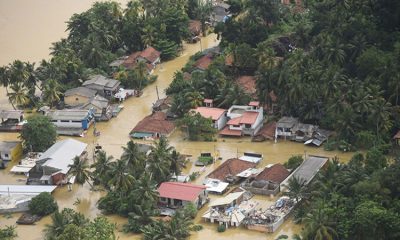
 News5 days ago
News5 days agoWeather disasters: Sri Lanka flooded by policy blunders, weak enforcement and environmental crime – Climate Expert
-
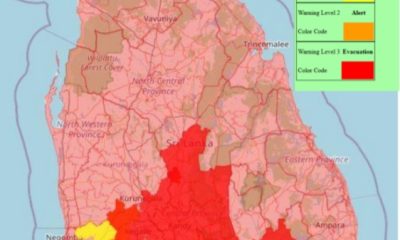
 Latest News6 days ago
Latest News6 days agoLevel I landslide RED warnings issued to the districts of Badulla, Colombo, Gampaha, Kalutara, Kandy, Kegalle, Kurnegala, Natale, Monaragala, Nuwara Eliya and Ratnapura
-
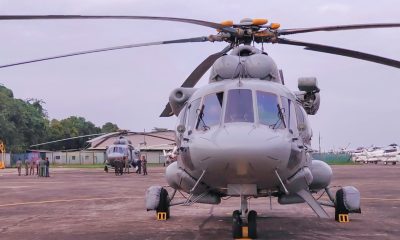
 Latest News6 days ago
Latest News6 days agoINS VIKRANT deploys helicopters for disaster relief operations
-
News2 days ago
Lunuwila tragedy not caused by those videoing Bell 212: SLAF
-
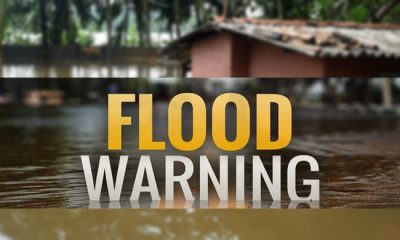
 Latest News6 days ago
Latest News6 days agoDepartment of Irrigation issues Critical flood warning to the Kelani river basin
-

 Latest News3 days ago
Latest News3 days agoLevel III landslide early warnings issued to the districts of Badulla, Kandy, Kegalle, Kurunegala, Matale and Nuwara-Eliya
-
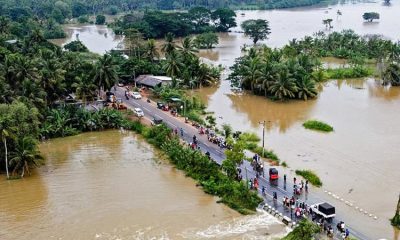
 News6 days ago
News6 days agoCountry reels under worst weather in living memory
-

 Editorial6 days ago
Editorial6 days agoNeeded: Action not rhetoric


